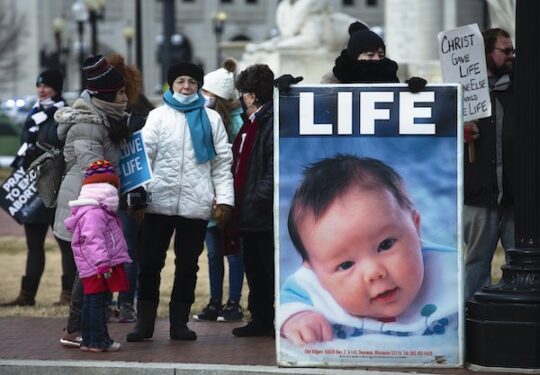By Tablet Staff
PROSPECT HEIGHTS — The pro-life law known as the Texas Heartbeat Act lost a preliminary court battle on Oct. 6 as a federal judge blocked the law while broader legal challenges are underway.

Federal District Court Judge Robert L. Pitman ruled in favor of the Justice Department’s request to pause enforcement, calling the law, which bans abortions as early as six weeks, an “offensive deprivation” of a woman’s right to control her life.
The 113-page ruling from the court in Austin, Texas, attacked the law which the U.S. Supreme Court had declined to block on Sept. 1.
Texas Right to Life called the ruling “wildly broad, preventing Texas state officials from enforcing the law, including the shocking prevention to stop Texas elected officials and every Texas judge and court clerk from even receiving lawsuits filed by citizens against the abortion industry.”
It also said the order’s provision blocking lawmakers from such actions is “entirely unnecessary” since the language of the legislation, called the Texas Heartbeat Act, prohibits government officials from enforcing the policy.
The Texas law focused on the baby’s heartbeat, which can be detected as early as six weeks into a pregnancy. It also takes a unique approach — making its abortion limitation enforceable not by state officials, but through lawsuits filed by private parties.
The pro-life organization said the judge’s “effort to obstruct state judges and court clerks from fulfilling their lawful duties is astonishing”
The group also said it is dedicated to “holding the abortion industry accountable to the fullest extent possible under the law” and is confident the state’s abortion law will “ultimately withstand this legal challenge and succeed where other states’ heartbeat bills have not.”
Texas officials said they would seek a reversal from the 5th U.S. Circuit Court of Appeals, which had previously allowed the abortion restrictions.
The Supreme Court had said its Sept. 1 opinion was not a judgment on the Texas law’s constitutionality and did not limit “other procedurally proper challenges.” A dozen other states have passed laws banning abortions at early stages, but courts have blocked those statutes.
